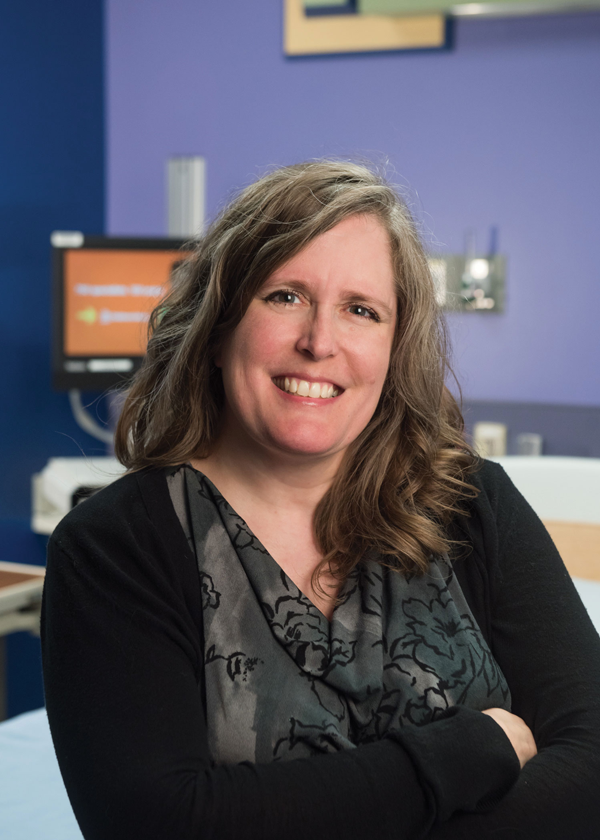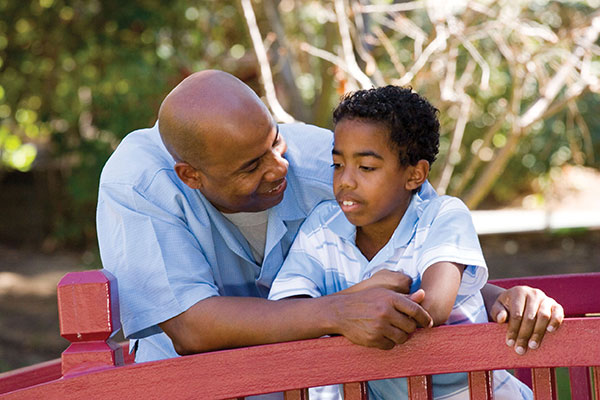5 Things Parents Should Do If Their Child Is Diagnosed with Cancer
by Kristin Stegenga, PhD
There are four words you never want to hear as a parent: “Your child has cancer.” As soon as those words are said, your world is immediately turned upside down. Life becomes a blur, and you are suddenly hit with a tsunami of emotion – shock, fear, anger, grief.
Cancer can feel like a death sentence. But it’s not. Over eighty percent of kids with cancer will survive. While the journey certainly isn’t easy, there are five important things you can do to help your family cope with the diagnosis.
1. Speak with Your Children
The best advice is to be upfront and honest about the diagnosis and prognosis with your child. Let them know they’ll have good days and bad days.
How your child will react really depends on their age. It’s hard for toddlers and elementary-aged children to really grasp the meaning of “cancer,” so they’re usually afraid of procedures and needles more than anything else. Teenagers are usually scared in the beginning, because of the unknown. However, most teens tell me they get used to it, and it gets easier when they understand what to expect next.
Parents often think they’re protecting their child if they hold back certain information, but the truth is, kids are very wise. Make sure to have an open dialogue with your child.
We all know the last thing on your mind when you have a sick child is yourself. But, if you don’t take care of yourself, you can’t take care of your child.
The same goes for siblings. Many times, other children in the family are unintentionally left out of discussions because they’re staying with relatives and not included in the day-to-day updates. Siblings can be just as scared, so it’s important they know what’s going on as well.
If your child is really sick, you need to have the tough discussions, and that may mean talking about death. Not talking about it can be detrimental. Speak with a chaplain, child life specialist, or your child’s doctors or nurses for ideas on how to have age-appropriate conversations about such difficult topics. Children are very smart, and they will ask if they’re going to die. You shouldn’t avoid the topic, because many times they know about the possibility anyway. Siblings need to be prepared, too. Just think about what it would be like if suddenly, without warning, a brother or sister didn’t come home.
2. Write Things Down
A lot of childhood cancers come on quickly and need to be addressed immediately. Parents should expect to receive a lot of information at once, which can be overwhelming. Write things down. Write down information you’re given about your child’s diagnosis, and write down questions you have for their doctor.
If you have someone you trust, like a family member or close friend, ask them to be your point person and write things down for you so you can just listen. Parents have told me it helps to have someone listen to the information with them to clarify anything they didn’t understand.
3. Don’t “Google”
There’s a lot of misleading or outdated information on the internet. I recommend speaking with your child’s healthcare provider before you “Google” their diagnosis. Ask your healthcare providers which websites have reputable information. If you see something contrary to what you’ve been told, bring it up with your care team. Don’t let it fester, and don’t give in to worry. Most likely, it’s just old or inaccurate data.
4. Treat Your Child the Same
Do not spoil your child. People will naturally bring your child gifts, but try to keep gifts to a minimum. It’ll be better for you – and them – in the long run.
You need to have the same routines and expectations you’ve always had for your child. If, all of a sudden, the rules no longer apply, your child may begin to think that the rules were thrown out the window because they’re going to die, which likely is not the case. It’s also not unheard of for siblings to wish they had cancer too so that they could be showered with presents.
Kids need to know that, although they have cancer, their family is still going to expect them to behave appropriately. This also helps normalize the cancer experience.
5. Take Care of Yourself
We all know the last thing on your mind when you have a sick child is yourself. But, if you don’t take care of yourself, you can’t take care of your child.
Most parents don’t want to leave their child’s side in the hospital, even when the child is sleeping, because they’re worried their child could wake up while they’re gone. But it’s important for you to step out of the room, even for a few minutes, to get food, get coffee, or take a walk. Find volunteers or nurses on the floor who can sit with your child while you take a moment for yourself. I know it’s hard, but it’s necessary to give yourself time to regroup or to connect with other parents who are facing similar circumstances. When you have a supportive system while you’re outside your normal environment, you and your child will adapt more quickly.
In the end, take a deep breath and know you’re not alone. The first couple months are the hardest, but it gets better.

Dr. Kristin Stegenga is a nurse researcher at Children’s Mercy Hospital in Kansas City, MO. She has practiced pediatric hematology/oncology nursing for 25 years. Her research focuses on supportive care for children, adolescents, and families dealing with cancer.
This article was published in Coping® with Cancer magazine, September/October 2018.


